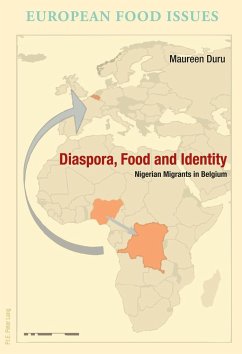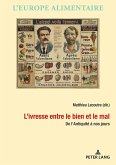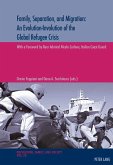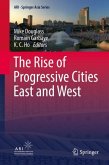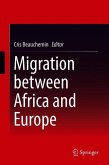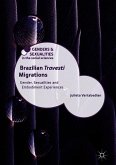This book examines the connection between food and identity in the Nigerian diaspora community in Belgium. Encounters between people from different cultures do not lead to a simple adaptation of the diet, but usually give rise to some kind of fusion of new and indigenous food habits.
The author questions the relationship between what Nigerian migrants in the diaspora eat, their self-perception and how they engage with outsiders. Starting with a historical introduction about the country, this study examines what aspects of the Nigerian food culture is retained and what has changed. This is reflected by the dynamics in the Nigerian homes, especially the gender roles.
The new generation of Nigerians, who see Belgium as home, also hang on to a Nigerian diet that remains not only an important part of who they are, but is also used in the creation of cultural boundaries and group identities. However, the influence of the new environment is very present because each diaspora community, wherever and whenever, must adapt. Skills such as language and social norms are indeed necessary to survive in the new environment. Yet, food plays a prominent role: on the one hand, it contributes to the affirmation of Nigerian feelings, and on the other hand, food serves as a means of communication with the host country.
The author questions the relationship between what Nigerian migrants in the diaspora eat, their self-perception and how they engage with outsiders. Starting with a historical introduction about the country, this study examines what aspects of the Nigerian food culture is retained and what has changed. This is reflected by the dynamics in the Nigerian homes, especially the gender roles.
The new generation of Nigerians, who see Belgium as home, also hang on to a Nigerian diet that remains not only an important part of who they are, but is also used in the creation of cultural boundaries and group identities. However, the influence of the new environment is very present because each diaspora community, wherever and whenever, must adapt. Skills such as language and social norms are indeed necessary to survive in the new environment. Yet, food plays a prominent role: on the one hand, it contributes to the affirmation of Nigerian feelings, and on the other hand, food serves as a means of communication with the host country.

